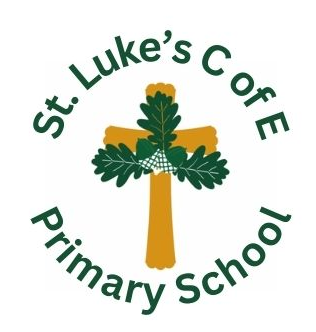Writing
Writing at St. Luke’s C of E Primary School
At St. Luke’s, we believe that writing is not only a fundamental skill but also a powerful tool for creativity, communication and self-expression. Our Writing Curriculum is designed to inspire a love of language, nurture confidence, and equip children with the skills they need to succeed both in school and beyond.
Our Vision
We aim for every child to:
-
Write with fluency, confidence and imagination.
-
Develop a rich vocabulary and use it effectively in both speech and writing.
-
Understand and enjoy a wide range of texts, and learn to write for different purposes such as informing, explaining, persuading, and entertaining.
-
Take pride in presenting their work clearly, with accurate spelling, grammar and handwriting.
-
Appreciate the importance of writing in their community and the wider world.
How We Teach Writing
Our approach combines high-quality teaching with opportunities for children to explore and enjoy writing across the curriculum. Lessons include:
-
Teacher modelling and shared writing – showing children what good writing looks like.
-
Guided and independent writing – allowing children to apply and develop their skills.
-
Spelling and grammar in context – taught in meaningful ways that support real writing.
-
Use of rich texts – stories, poems and non-fiction that inspire and challenge young writers.
Children write for a range of purposes and audiences, and every unit of work builds towards an extended piece of writing. This helps pupils to develop resilience, independence and pride in their work.
Supporting All Learners
Every child is given the opportunity to succeed. Through carefully planned adaptations, scaffolds, and targeted support, we ensure that children of all abilities can access the same curriculum and make strong progress.
Assessment and Progress
Assessment is ongoing and purposeful. Teachers use daily feedback, alongside more formal assessments, to track progress and set next steps. Targets are shared with pupils and parents so that achievements can be celebrated and areas for growth supported.
Early Years Foundation Stage
In Reception, children are immersed in a language-rich environment where speaking, listening, and emergent writing are at the heart of learning. From role play to phonics sessions, children are encouraged to explore words and ideas, laying the foundations for future writing success.
In line with the writing framework, EYFS and Key Stage 1 do not focus on teaching fixed ‘text types’. Instead, children are encouraged to write with clear purposes in mind – for example, to inform, to describe, to persuade, or to entertain. This helps them to see writing as meaningful and adaptable, preparing them for a wide range of contexts as they progress through school.
From Text Types → To Writing Purposes
| Traditional “Text Type” | Purpose-Based Replacement (Writing to…) |
|---|---|
| Recount | Inform by retelling events / share experiences |
| Explanation | Explain how or why something happens |
| Non-chronological report | Inform by describing and organising facts |
| Biography / Autobiography | Inform and reflect by telling the story of a life |
| Newspaper report | Inform others by reporting what has happened |
| Persuasive advert | Persuade or influence choices / promote ideas |
| Narrative (story, myth, etc.) | Entertain, imagine and engage readers |
| Instructions | Inform by guiding someone how to do/make something |
| Discussion / Argument | Explore, compare and evaluate different viewpoints |
| Poetry | Express ideas, feelings, and imagination creatively |
Beyond the Classroom
At St. Luke’s, writing does not stop at English lessons. We encourage children to apply their skills in all subjects and to see writing as a tool for exploring, questioning, and expressing their understanding of the world.
